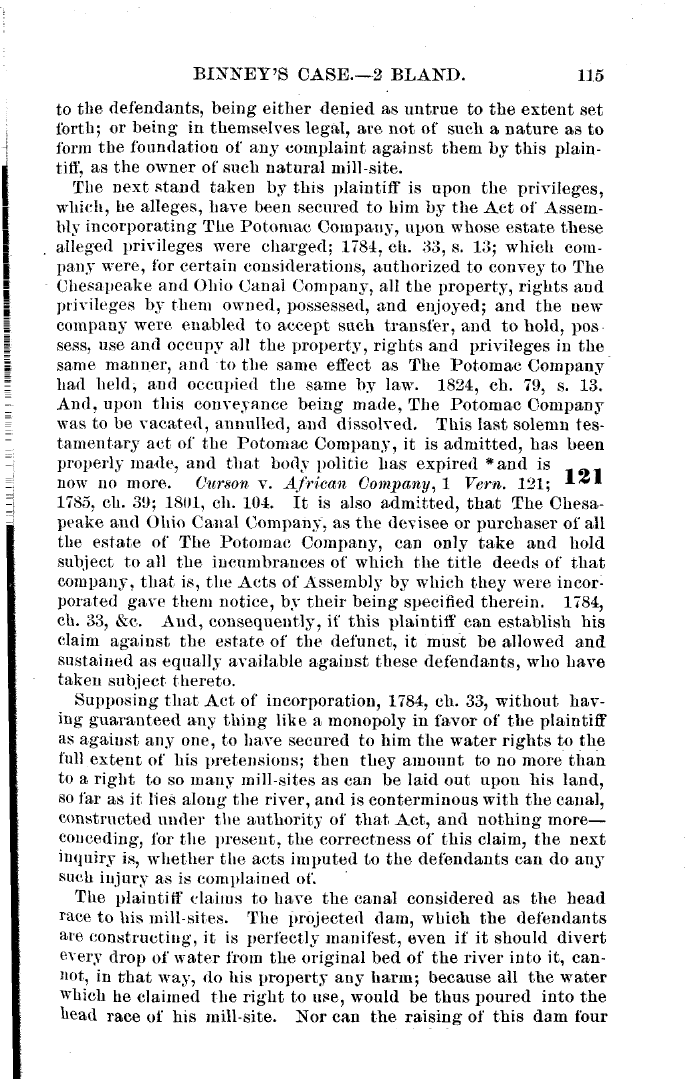|
BINNEY'S CASE.--2 BLAND. 115
to the defendants, being either denied as untrue to the extent set
forth; or being in themselves legal, are not of such a nature as to
form the foundation of any complaint against them by this plain-
tiff, as the owner of such natural mill-site.
The next stand taken by this plaintiff is upon the privileges,
which, be alleges, have been secured to him by the Act of Assem-
bly incorporating The Potomac Company, upon whose estate these
alleged privileges were charged; 1784, cit. 33, s. 13; which coin-
parry were, for certain considerations, authorized to convey to The
Chesapeake and Ohio Canal Company, all the property, rights and
privileges by them owned, possessed, and enjoyed; and the new
c-ipany were enabled to accept such trans. s
on fer, artd. to hold, pos
less, use and occupy all the property, rights and privileges in the
sane manner, and -to the same effect as The Potomac Company
had held; and occupied the same by law. 1824, ch. 79, s. 13.
And, upon this conveyance being made, The Potomac Company
was to be vacated, annulled, and dissolved. This last solemn tes-
tamentary act of the Potomac Company, it is admitted, has been
properly made, and that body politic has expired 'sand is
now no more. Curson v. African Company, 1 Yern. 121; 121
1785, ch. 39; 18111, ch. 104. It is also admitted, that The Chesa-
peake and Ohio Canal Company as the devisee or purchaser of all
the estate of The Potomac Company, can only take and hold
subject to all the ineumbrances of which the title deeds of that
company, that is, the Acts of Assembly by which they were incor-
porated gave them notice, by their being specified therein. 1784,
ch. 33, &-c. And, consequently, if this plaintiff' can establish his
claim against the estate of the defunct, it must be allowed and
sustained as equally available against these defendants, who have
taken subject thereto.
Supposing that Act of incorporation, 1784, ch. 33, without hav-
ing guaranteed any thing like a monopoly in favor of the plaintiff
as against any one, to have secured to him the water rights to the
full extent of his pretensions; then they amount to no more than
to a right to so many mill-sites as can be laid out upon his land,
so far as it lies along the river, and is conterminous with the canal,
constructed under the authority of that Act, and nothing more-
conceding, for the present, the correctness of this claim, the nest
inquiry is, whether the acts imputed to the defendants can do any
such injury as is complained of'.
The plaintiff claims to have the canal considered as the head
race to his mill-sites. The projected dam, which the defendants
are constructing, it is perfectly manifest, even if it should divert
every drop of water from the original bed of the river into it, can-
'lot, in that way, do his property any harm; because all the water
which he claimed the right to use, would be thus poured into the
head race of his mill-site. Nor can the raising of this dam four
|

